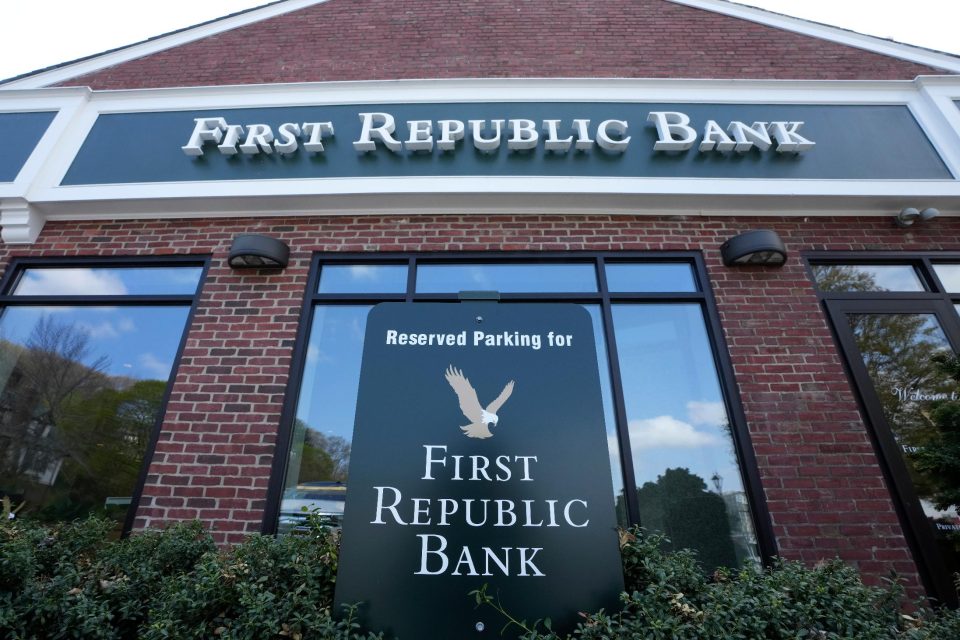Regulators continued over the weekend to find a solution to First Republic Bank’s woes ahead of the stock market’s scheduled opening on Monday.
San Francisco-based First Republic has been struggling since the collapse of Silicon Valley Bank and Signature Bank in early March. Investors and depositors are growing concerned that the bank may not last much longer as a separate entity. Shares of the bank closed at $3.51 on Friday, a fraction of where they were trading at around $170 a year ago.
Former Goldman Sachs President Gary Cohn, who served as President Donald Trump’s chief economic adviser, said on Sunday CBS News’s “Face the Nation” that the FDIC “would rather sell the bank as a whole than piece by piece.”
“The most likely thing that will happen is that the FDIC will seize control and then simultaneously resell the assets to the winning bidder,” Cohen said.
Cohen said he believed it would happen a “much faster process” than what occurred with Silicon Valley Bank.
As of March 31, First Republic reported total assets of $233 billion. Late last year, the Federal Reserve ranked First Republic the 14th largest US commercial bank in size.
Before Silicon Valley Bank collapsed, First Republic had a banking franchise that was the envy of most in the industry. Most of its wealthy and powerful clients rarely default on their loans. According to reports, the 72-branch bank lends most of its lucrative low-cost loans to wealthy individuals, including Meta Platforms CEO Mark Zuckerberg.
First Republic, which has a wealth of deposits from the affluent, has more than doubled its total assets from $102 billion at the end of the first quarter of 2019, when it employed 4,600 full-time employees.
But most deposits at First Republic, like those at Silicon Valley and Signature Bank, are not insured above the $250,000 limit set by the FDIC. That is starting to fuel concerns among analysts and investors about the franchise. If the First Republic failed, its depositors risked not getting all their money back.
Those concerns were on display in the bank’s most recent quarterly results. Depositors withdrew more than $100 billion from the bank during the crisis in April, the bank said. San Francisco-based First Republic said it could stop the bleeding only after a group of big banks stepped in and rescued it with $30 billion in uninsured deposits.
Since the crisis, the First Republic has been looking for ways to turn things around quickly. The bank plans to sell unprofitable assets, including low-interest mortgages, to wealthy customers. It also announced plans to lay off as much as a quarter of its workforce, for about 7,200 by the end of 2022.
But investors remain sceptical. The bank’s executives have not answered any questions from investors or analysts since the bank’s results, sending shares down even further.
And when a company has to sell assets quickly and has fewer bankers, it’s hard to restructure its balance sheet to be profitable, like the financial crisis 15 years ago. These banks benefit from the backing of government aid to keep them afloat.







